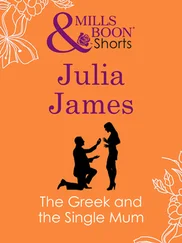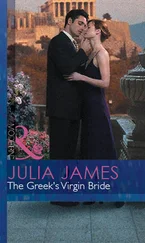Julia James - The Lady Most Willing
Здесь есть возможность читать онлайн «Julia James - The Lady Most Willing» весь текст электронной книги совершенно бесплатно (целиком полную версию без сокращений). В некоторых случаях можно слушать аудио, скачать через торрент в формате fb2 и присутствует краткое содержание. Жанр: Старинная литература, на английском языке. Описание произведения, (предисловие) а так же отзывы посетителей доступны на портале библиотеки ЛибКат.
- Название:The Lady Most Willing
- Автор:
- Жанр:
- Год:неизвестен
- ISBN:нет данных
- Рейтинг книги:4 / 5. Голосов: 1
-
Избранное:Добавить в избранное
- Отзывы:
-
Ваша оценка:
- 80
- 1
- 2
- 3
- 4
- 5
The Lady Most Willing: краткое содержание, описание и аннотация
Предлагаем к чтению аннотацию, описание, краткое содержание или предисловие (зависит от того, что написал сам автор книги «The Lady Most Willing»). Если вы не нашли необходимую информацию о книге — напишите в комментариях, мы постараемся отыскать её.
The Lady Most Willing — читать онлайн бесплатно полную книгу (весь текст) целиком
Ниже представлен текст книги, разбитый по страницам. Система сохранения места последней прочитанной страницы, позволяет с удобством читать онлайн бесплатно книгу «The Lady Most Willing», без необходимости каждый раз заново искать на чём Вы остановились. Поставьте закладку, и сможете в любой момент перейти на страницу, на которой закончили чтение.
Интервал:
Закладка:
“Lord Oakley,” she asked with some curiosity, “do you feel that you might have a fever?”
“Absolutely not.”
“You seem to be acting out of character. Do you think your friends would recognize you if they could see you now?”
“Of course they would.”
She hesitated. “You do know that Marilla and I attended the London season the last two years?”
A slight frown creased his brow. “Will you eat this crumpet, or shall I finish it?”
She accepted what little remained of the crumpet and finished it in two bites. Butter dripped onto the back of her hand, and without thinking she licked it off. Their eyes met again, and the warmth in her stomach spread to her legs.
“I glimpsed you at two balls in the last season,” she said, straightening her back. “You were pointed out to me as one of the most eligible men in London—that was before you asked for Lady Opal’s hand in marriage, of course.”
“But we were not introduced.” He frowned in a rather irresistible way. “I would have remembered you.”
“Of course we were not introduced,” she said, almost laughing at him. “Marilla and I are as far beneath your notice as butterflies are to a . . . a . . .”
“Hawk?” he suggested.
“Elephant?”
The right side of his mouth hitched up in an enchantingly hesitant smile.
“At any rate,” she said hastily, reminding herself that this flirtation had no future, “I rather think your friends might believe you’d lost your mind if they could spy on you.”
“I would like to know what it was like to grow up with a sibling,” he said, ignoring her comment. “Did she steal your toys? I believe that is common behavior.”
“Surely Rocheforte stole your things when you were boys?”
“My father did not consider Robin suitable company for his heir,” the earl said. “A matter of his French blood, you understand. We met only as adults, so I did not share my nursery with anyone.”
Her hunch had been right, then: his had indeed been a lonely childhood. “Marilla did borrow my things occasionally,” Fiona admitted. She took a sip of the cider and broke into a fit of coughing.
He leaned over, slipped a hand behind her, and gave her a gentle clap on her shoulder. “Are you all right?”
Excepting the fact that she could feel the touch of his fingers all the way through ancient velvet, two chemises, and a corset, she was fine. Just fine. “Your uncle’s cider is a trifle stronger than I’m used to.”
Byron poured himself a new cup, and took a healthy swallow. “Brandy with a touch of cider, rather than the reverse,” he said with obvious pleasure. “It isn’t as though we have to do anything requiring coordination.”
Fiona took another sip. The drink burned on the way down to her stomach, reminding her that one crumpet, plus two bites of another, wasn’t much of a meal.
“Let’s return to the subject of your childhood,” Byron said, settling into his corner of the sofa.
“Let’s not,” Fiona said. “We ought to join the others in the drawing room. It must be nearly time for supper.”
There was something wild and boyish about the earl’s face, as if he’d thrown his entire personality—at least, what she’d seen of it in London—out the window. “Not after I went to all that trouble to sneak in here,” he said. “Besides, I’m enjoying this. Very much.”
Fiona felt a blush creep up her neck.
“Lord Oakley,” she said cautiously, “did you take anything to drink before that cider?”
“No,” he said, tipping his head against the back of the sofa. “I did not. But I might drink that whole pitcher; I may never return to the drawing room.” He turned his head and looked into her eyes. “I don’t want to be kissed by your sister again. And that’s even though I gave some thought to marrying her.”
Fiona cleared her throat. “I can understand that.”
He leaned toward her. “But I wouldn’t mind if you kissed me. If you address me as Oakley once again, I shall kiss you . There: I’ve given you fair warning.”
“I shall not kiss you,” Fiona exclaimed, drawing back. “I don’t kiss anyone.”
“And your reason for such abstinence?”
“That’s none of your business.”
He settled back into his corner, nodding. “You would probably share such information only with your intimates. Friends.”
Fiona glanced at him, feeling shy, but she couldn’t bring herself to tell him about Dugald. Not yet. “Marilla and I didn’t fight over toys,” she said, looking back to the fire. “I didn’t mind sharing. But when we were growing up, my sister always wanted a portrait frame that I owned.”
He stretched out an arm along the back of the sofa; it was amazing how a person could not touch you . . . and still touch you. “Did she take it from you?”
She nodded. “I always got it back, though.”
“And that frame held a portrait of your dead mother.” She felt him pick up a lock of her hair.
“How on earth did you guess that?” She turned to face him again, and her hair slid from his fingers. Her toes were a little chilly; she pulled up her legs and wrapped her arms around her knees.
“Power of deduction,” he answered, shrugging. “I suspect that you have always given Marilla what she wants, because I doubt there are many material objects you hold dear. I could think of only one thing that you wouldn’t give up. She would want it all the more because it was important to you.”
She stole another look at him, and realized that there was one other thing that she would never willingly give to Marilla . . . but he wasn’t hers to keep. It was a horrifying thought. It was hard enough to recover from the emotional morass caused by Dugald’s death. She didn’t need to fall in love with an improbably beautiful and thorny lord as well.
“It was a very, very pretty frame,” she said, realizing she had adopted Marilla’s favorite phrase only as she said it. “Silver worked with pearl, and of course my sister was quite young when she first saw it.”
Byron stood and moved to the fire, onto which he carefully placed two more logs. As she watched him, it occurred to Fiona that he probably did everything carefully. He returned to the sofa, but somehow ended up seated not at one end, but in the middle.
His hip touched her slippers, in fact. Once again, he slung his arm along the sofa and picked up a lock of her hair. Unsure how to react to this, Fiona pretended not to notice.
“What happened to the frame?” he asked.
“She began stealing the portrait and hiding it, after which I would tear apart her bedchamber looking for it. Eventually, my father heard of our battles, and he sent off to London to have a precise duplicate made, but with a portrait of Marilla’s mother rather than mine. She was, you understand, very beautiful.”
“Your mother must have been extraordinarily lovely as well. What was your father’s secret?” His eyes held an expression she recognized, though it wasn’t often directed at her. She’d seen it too often in the eyes of men looking at her sister to mistake it. He must be drunk to feel lust for her. Quite drunk.
“In fact, my mother was an ordinary woman,” she said, hugging her knees.
“I doubt that.” He paused, then: “How did she die?”
“She caught pneumonia one particularly cold winter. I was quite young, so I haven’t many memories of her, but she was motherly, if you know what I mean.”
“Dark red hair like yours?”
She nodded.
“Your hair has all the colors of the fire in it, like banked logs that might burst into flame any moment. And it curls around my finger like a molten wire.” Without stopping, he asked: “What happened when the portrait arrived?”
Читать дальшеИнтервал:
Закладка:
Похожие книги на «The Lady Most Willing»
Представляем Вашему вниманию похожие книги на «The Lady Most Willing» списком для выбора. Мы отобрали схожую по названию и смыслу литературу в надежде предоставить читателям больше вариантов отыскать новые, интересные, ещё непрочитанные произведения.
Обсуждение, отзывы о книге «The Lady Most Willing» и просто собственные мнения читателей. Оставьте ваши комментарии, напишите, что Вы думаете о произведении, его смысле или главных героях. Укажите что конкретно понравилось, а что нет, и почему Вы так считаете.












